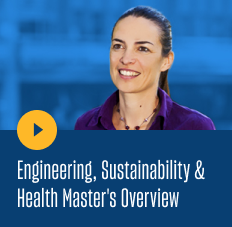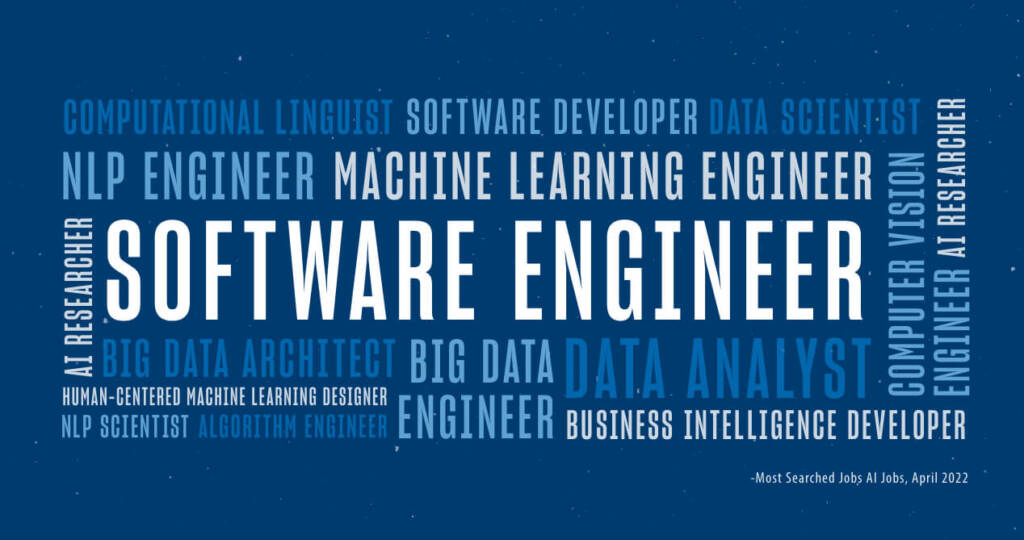Governments may have declared an official end to the COVID-19 Public Health Emergency, but amid the threat of future pandemics, climate-related disasters and international conflict, there’s a greater need than ever for public health workers.
From working to help prevent the spread of disease to providing disaster relief, educating others, performing vital research and engaging in activism, public health workers are active in organizations and on the frontlines to address the systemic health challenges that threaten all of our communities.
If you would like to take action to improve the health and wellness of others, here’s what you need to know about the field of public health, what jobs you can get with a public health degree and careers and helpful resources for public health professionals.
What Is Public Health?
The Centers for Disease Control and Prevention defines public health as “work and study that protects and improves the health of communities through policy recommendations, health education and outreach, and research for disease detection and injury prevention.” While the Institute of Medicine defines it more broadly as what “we as a society do collectively to assure the conditions in which people can be healthy.”
As a multidisciplinary field, public health addresses many of the major health needs of entire populations, most often through:
- Disease prevention and control to mitigate the spread of infectious diseases, as well as chronic conditions such as heart disease, cancer and diabetes.
- The promotion of healthy behaviors and lifestyles, such as good nutrition and healthy eating, regular physical activity and tobacco use cessation.
- Addressing environmental health factors that can contribute to poor health outcomes, such as air pollution, lead exposure and unsafe drinking water.
- Developing and implementing health policy and programs management to improve health outcomes and ensure equitable access to healthcare services.
Public health issues are caused by more than pollution, pandemic outbreaks and natural disasters. The World Health Organization also recognizes conflict as a major cause of humanitarian health crises. Violence and conflict in areas such as Iraq, South Sudan, Nigeria, Yemen and Ukraine all cause shortages in health services, skilled health workers and essential medicine and other supplies.
Systems of oppression and discrimination are also major threats to public health, with data showing lower life expectancy and disproportionate impacts of disease and poor health conditions among racial and ethnic minority populations. Only recently have organizations like the Centers for Disease Control and Prevention and the American Public Health Association recognized that racism is a public health crisis.
Any work that improves living conditions and overall quality of life for communities is in the service of public health.
Education for All Public Health Professionals
If you’re interested in a career in public health, then an important first step is to earn a bachelor’s degree in healthcare related fields, such as the health sciences, biology, health administration or nursing. You could also consider approaching public health from a social science discipline or the field of informatics. Social sciences play an essential role in understanding socio-economics, sociocultural systems and human behavior — all of which have long been interconnected with the study and application of public health. Informatics is a vital component of applying data and analysis to understanding human health and health care services — to the point that health informatics is its own well-established field of study.
Earning a bachelor’s degree is also a necessary step toward the advanced degrees that can allow you to work in more specialized fields or in leadership positions. Over the past 20 years, the Master’s of Public Health (MPH) degree has grown to be the most popular degree for those interested in public health careers. Just as public health degrees began to wane in popularity in 2020, the COVID-19 pandemic supercharged interest in the degree, with some schools seeing up to a 50% increase in student applicants. While that spike of popularity has normalized over the past few years, interest in the MPH degree is expected to remain high.
While an MPH degree is not required to work in public health, it’s recommended for those who want to advance in areas like epidemiology, global health, environmental engineering and environmental health.
Careers You Can Get With a Master’s in Public Health
If you’re curious about what you can do with a public health degree, an MPH makes you a great fit for positions in healthcare industries, public policy committees, nonprofit organizations, government agencies, administration and community practice settings.
Examples of public health degree jobs include:
- Epidemiologist — Salary range of $89,699 to $125,299*
Responsible for investigating patterns and causes of disease and injury, epidemiologists are employed at health departments in the public sector, healthcare institutions and higher education. Their goal is to reduce the risk and occurrence of negative health outcomes for communities. According to the US Bureau of Labor Statistics (BLS), there’s an expected job growth of 26% from 2021 to 2031, much faster than the average for all occupations. - Community and Social Service Manager — Salary range of $54,146 to $67,389*
Responsible for coordinating and supervising programs and organizations that promote public health causes and initiatives, community and social service managers can work in the for-profit, nonprofit and public sector. Part of their responsibilities involve collecting statistics and other relevant data to evaluate the impact that social programs have on local communities. According to the BLS, there’s an expected job growth of 12% from 2021 to 2031, faster than the average for all occupations - Water Quality Manager — Salary range of $78,017 to $91,902*
Water quality managers supervise, direct and organize water quality for a city, municipality or region, ensuring that all activity complies with appropriate regulations and oversees proper land use and watershed management. They can be employed by government agencies, private utility services, research or consulting firms. - Medical and Health Service Manager — Salary range of $74,405 to $93,110*
Also known as health services administrators, medical and health service managers set and carry out public health policies, goals and procedures for their departments or facilities. They can manage a medical practice, clinical area or entire healthcare facility, with duties including hiring, scheduling and evaluating staff, monitoring compliance with state and federal guidelines and developing reports and budgets. According to the BLS, this position is projected to grow 28% from 2021 to 2031, much faster than the average for all occupations. - Disaster Relief Coordinator — Salary range of $65,283 to $89,191*
Also called an emergency management coordinator, disaster relief coordinators create plans and procedures for disaster response and then help to lead that response to natural disasters and other emergencies, such as hazardous spills or terrorist attacks. They’re also responsible for coordinating resources and funds, developing educational materials and ordering supplies and equipment. - Health Informatics Specialist — Salary range of $62,483 to $98,554*
These are technology specialists who gather and analyze data related to health care concerns. They can be employed by healthcare facilities, private enterprises or government agencies and are expected to manage the data collection and systems that can provide insights on how to improve health care outcomes. They may be asked to design workflows, assess and maintain computer systems and educate and train end users.
* Salary ranges sourced from salary.com in May 2023
These are only a handful of possible career paths, as those with master’s degrees in public health have the skills and knowledge to contribute to many different roles across numerous industries. For more information on MPH career paths and how the MPH degree compares to a Master of Science in Public Health, see our comparison blog post.
Want to Work with Other Professionals Toward Sustainable Solutions? Learn More About the MESH Program in Our On-Demand Webinar — Watch Now
Are There Differences between Public and Community Health?
This is largely a matter of who’s defining the terms, as research shows that the use of the term “community health” has been largely ambiguous and “overly general.” However, you can think of public health as “big picture” and community health as more localized.
Public health often refers to larger health concerns, such as studying the spread of infectious diseases or measuring how healthcare initiatives affect wider populations. Community health, in contrast, is more directly focused on addressing the particular needs of a community and less focused on the larger, global issues that some of the public health positions may be concerned with.
Those who choose to work in community health may take specialized jobs based on local needs. For example, certain communities may have a need for child care services, others for better nutrition and food assistance programs, and still others for counseling and providing support for drug addiction or homelessness.
Most careers in public health will tend toward policy making, management, planning and research, while community health jobs will involve more “boots on the ground” action and activism. Certain positions, such as a community health worker, may require certification by a board or institution.
Career Advice from Public and Community Health Experts
You can’t do it all on your own. So, if you’re interested in a career in either public health or community health, start by considering your own personal interests and goals, and then see how they align with different programs, courses, organizations and — yes — communities.
- Determine your areas of interest and what you’re passionate about. If you’re serious about a public health career, then you need to be sure it’s something you’re willing to invest your time, money and effort into.
- Consider your career goals and how they might align with your interests. You also want to consider what your future goals are — is there a certain position you’d like to achieve or a salary amount that you want to earn? Are you looking to serve your own community, or do you want to work for other communities around the world?
- Research requirements for education and experience. Once you have a feel for where you want to be and what you want to be doing, start researching if there’s any specialized knowledge or required education to work in those areas. Are there certain degrees, certificates or job experiences that will advance your public health career?
- Reach out to support networks to communicate with others with similar interests. Making connections and networking is not only essential for finding opportunities, it’s also a great way to build systems of support. Look for public health groups on social media sites like LinkedIn and consider joining professional organizations to connect with like-minded peers.
- Take care of yourself. As alluded to at the start, working in community and public health can be difficult, taxing and emotionally draining, as you may engage directly with people who may be suffering from extreme poverty, lack of access to food and water or communicable diseases. Talk to your support networks about resources for physical, mental and emotional self-care.
- Go out and get involved! Public and community health means that you’re working with and for the public and community — even if you’re focused largely on lab work or policy making. Volunteering for causes you believe in is not only fulfilling, it may even open up new opportunities.
As a transdisciplinary field, there are opportunities to advance the cause of public health in many disciplines. Additionally, improving public health must be sustainable both economically and environmentally, otherwise our efforts are just shifting the problems from one community to another.
If you’re interested in exploring transdisciplinary applications of public health — especially in how it impacts and is impacted by the environment — you might be interested in exploring transdisciplinary programs that are open to students from all disciplines, like the University of San Diego’s Master of Science in Engineering, Sustainability and Health (MESH). At MESH, we’ll work to bring your expertise into the mix of others studying in the program, and draw on your background and knowledge to support the ongoing transdisciplinary search for global solutions to our most pressing challenges. Public health will be an incredibly useful jumping off point to begin your journey.
Contact us to learn more about how our transdisciplinary approach could give you a different vantage point in the search for global health solutions.
Hear More About the Transdisciplinary Vision Behind the MESH Program in Our
Free On-Demand Webinar — Watch Now
Helpful Resources for Healthcare Industry Professionals
Follow these links for more information on public health resources:
- The American Public Health Association
- National Commision for Health Education Credentialing
- US Dept of Health and Human Services
- Centers for Disease Control and Prevention
- Public Health Learning Network
- World Health Organization
- Society for Public Health Education




